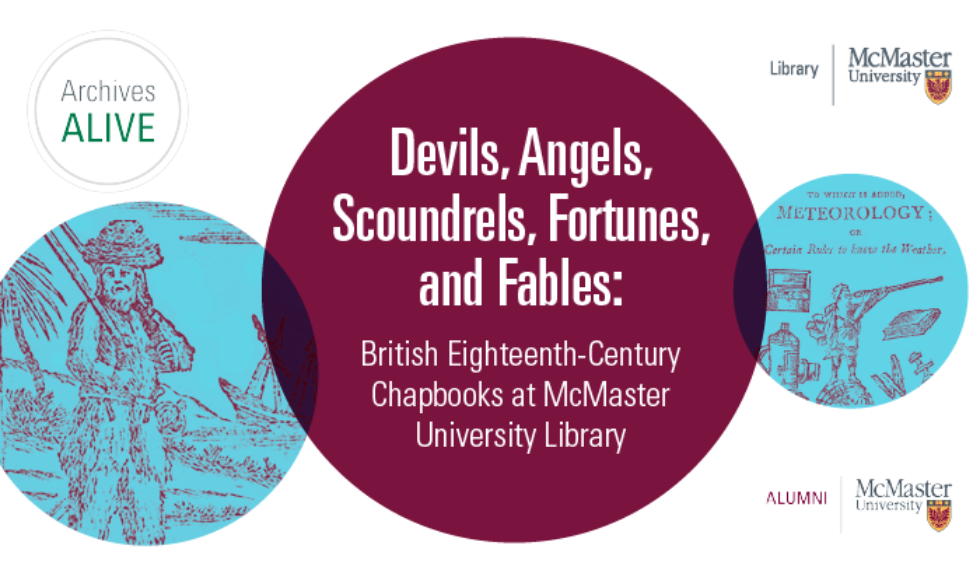Archives Alive returns with virtual talk tracing history of the beloved and beauteous chapbook

The popular Archives Alive series, a partnership between McMaster University Library and McMaster Alumni, returns for the 2022-23 season.
The latest edition of the popular Archives Alive series is set to launch with a presentation on the wondrous peculiarities of the chapbook.
Devils, Angels, Scoundrels, Fortunes, and Fables: British Eighteenth-Century Chapbooks at McMaster University Library is set for Oct. 6, 2022, from noon to 1 p.m. ET.
Presenter Gillian Dunks, archives arrangement and description librarian at McMaster library, says the tradition of chapbooks is a fascinating one.
“To spend time with these little books is to better understand an oft-neglected, profane, and beauteous genre of British print which continues to influence chapbooks produced today,” said Dunks.
Chapbooks are small, affordable forms of literature covering a range of topics, available in Europe as early as the 16th century. Throughout most of their history, chapbooks were simply created, featuring a combination of unbound pages sewn together.
Inexpensive chapbooks proliferated in Europe, particularly Britain, from the 16th to early 19th centuries. They were sold by peddlers, hawkers, and itinerant merchants known as ‘chapmen’.
Popular amongst children, the working poor, and people who left few other records of their lives behind, chapbooks featured a wide range of subjects: tales of scoundrels, tips on fortune telling, and shortened versions of medieval romances.
The Disbounds Collection at the William Ready Division of Archives and Research Collections at McMaster University Library features more than 7,000 items predominantly printed prior to 1800, including a large collection of chapbooks.
Dunks consulted 200 chapbooks from the Disbounds Collection to draw inspiration and sources for her upcoming virtual talk. Among the featured texts will be an abridged version of a classic, The Life and Adventures of Robinson Crusoe; a version of a medieval romance, The History of Valentine and Orson, and a text to aid in divination: Nine Pennyworth of Wit.
“There is a rich complexity to chapbooks and other forms of ephemeral print. Studying them deepens and complicates our understanding of Western literary canons, which encompass both profane and ‘sophisticated’ verse, as well as noble and quotidian themes,” said Dunks, who holds a master of arts in English literature and a master of archival studies, both from the University of British Columbia.
“Chapbooks were read by members of all social strata, though perhaps not all admitted it. The fact that any of these small books have survived is remarkable.”
All are welcome to attend the Archives Alive presentation. Admission is free.
Register for the Oct. 6 Archives Alive event
Archives Alive showcases the unique holdings of McMaster University Library’s William Ready Division of Archives and Research Collections. A wealth of resources exist which will delight and inform, from rare books created before 1800 to contemporary writers’ archives. Recognizing that archives can feel intimidating, these talks allow staff and researchers to share their knowledge with the community and introduce collection items housed within the library. Archives Alive is presented by McMaster University Library and McMaster Alumni.


